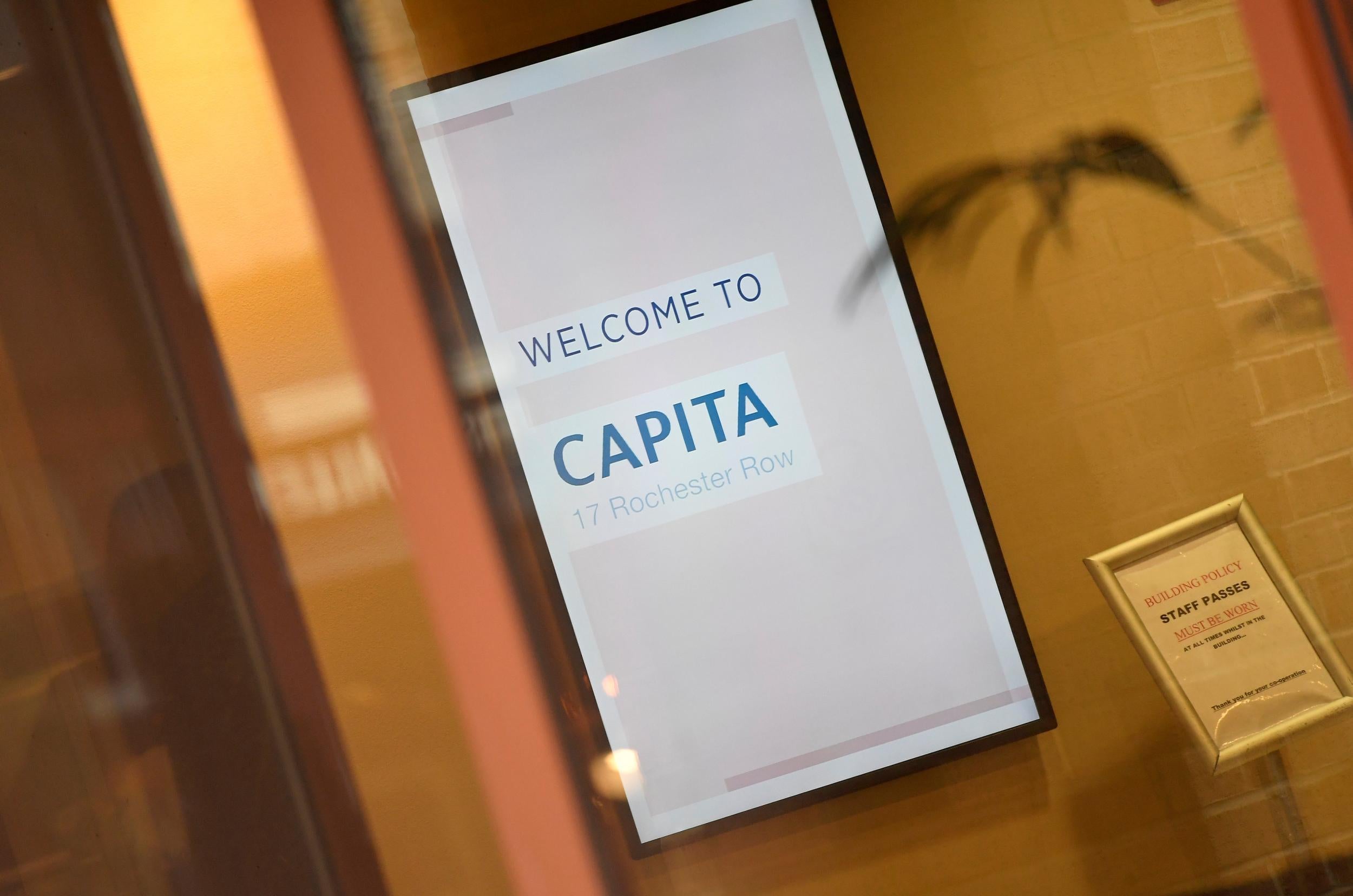Capita is not Carillion 2.0 but it’s swimming against the tide
The difficulties exposed by its profit warning can only add to the mounting scepticism the outsourcing industry faces in this country, and the feeling that the process has gone too far


Hot on the heels of Carillion’s collapse, Capita has stepped up to give ministers more of a fright than watching Hereditary in a haunted house (it’s reputedly the scariest horror film of all time).
The outsourcer has won more than 10 times the number of public sector contracts operated by its deceased peer over the past two years, according to researcher Tussell.
As such, its announcement of a profit warning, a £700m cash call, dividend suspension and disposal programme ought to have created a shudder all the way up to No 10 Downing Street.
Investors did far more than that. They were left positively black and blue as the already bombed out shares took a 40 per cent bath. More than £1bn in market value simply evaporated.
However, when I asked the company’s people why we shouldn’t think this will ultimately lead to Carillion 2.0 – a very scary prospect given the diversity of the functions that Capita performs – they came up with a plausible response: it is doing what Carillion should have done when the problems there first emerged, they said; it has £1bn in the bank, in contrast to Carillion’s £29m; it is a very different business; and it doesn’t do the sort of big Middle Eastern construction contracts that Carillion tripped up over. It is, they said, more of a back-office operator, and it does lot more private sector work than Carillion ever did.
“This is a reset, not a rescue,” said recently appointed CEO Jonathan Lewis.
He also had this to say: “Today, Capita is too complex, it is driven by a short-term focus and lacks operational discipline and financial flexibility.”
Give that man a cigar!
The trouble is: recognising the problem is easy, and that’s not an exaggeration. It is something that’s been obvious to me, a mere journalist, for years. I’ve written as much. Ditto the National Audit Office. It called into question the Government’s reliance on contractors such as Capita and Carillion way back in November 2013.
Fixing it will be much, much harder.
Capita also needs to keep on winning work while that process is under way. That too could be a tough ask.
Consider the fallout from the Government handing £1.3bn worth of contracts to Carillion after its problems first emerged with its profit warning last year.
As a result of its difficulties, ministers will be well aware that they are now going to take heat every time they give Capita work. If I were Jeremy Corbyn, I’d have my people watching its stock exchange feed like hawks so I could use the first contract win against Theresa May at PMQs. And the second. And the third.
In some ways the Government is damned if it does and damned if it doesn’t. The jam it is in once again exposes the folly of handing the responsibility of performing so many vital state functions to such a small number of sprawling support service conglomerates in the first place, as that National Audit Office report noted.
Local authorities, a big Capita business area, are also likely to be twitchy, not to mention Capita’s private sector partners. Wouldn’t you be?
Even if Capita can convince its customers that they needn’t worry, it can do the work, and they won’t be left in the sort of jam Carillion’s were left in, it faces a longer-term challenge.
The difficulties exposed by its profit warning can only add to the mounting scepticism the outsourcing industry faces in this country, and the feeling that the process has gone too far.
Profitable work is already becoming harder for companies like Capita to get. Just imagine what will happen if a government led by Corbyn takes office.
Capita is swimming against a tide of public and political sentiment. It could turn into a tidal wave under Labour.
This is a company that needs to downsize, restructure itself, and still find new customers and new business. Lewis had better not light that cigar just yet.
Join our commenting forum
Join thought-provoking conversations, follow other Independent readers and see their replies
Comments
Bookmark popover
Removed from bookmarks